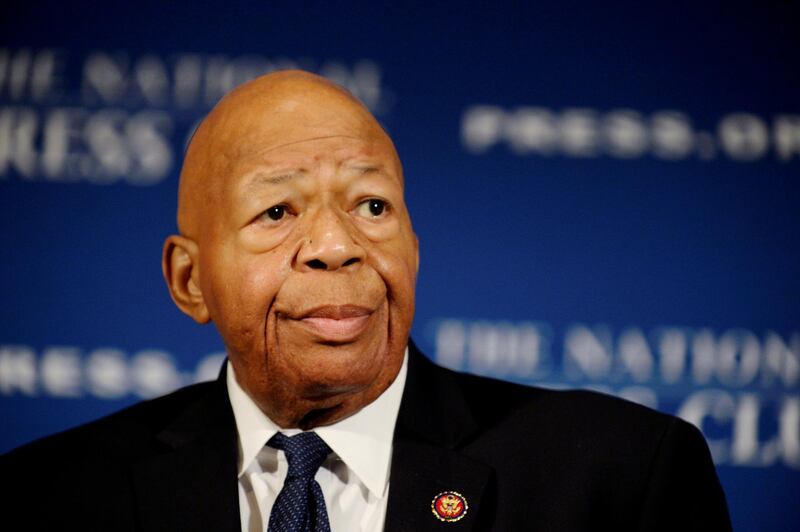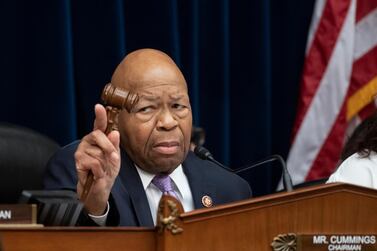US Representative Elijah Cummings has died from complications of longtime health challenges, his office said in a statement on Thursday morning.
The Baltimore congressman died at Johns Hopkins Hospital at 2:45 am, US media reported.
Cummings was the powerful House Oversight and Reform Committee chairman pushing forward inquiries into President Donald Trump’s administration and is often criticised by the commander in chief.
He led multiple investigations of the president’s governmental dealings, including probes in 2019 relating to the president’s family members serving in the White House.
The Democratic lawmaker of 23-years was a formidable orator who passionately advocated for the poor in his black-majority district, which encompasses a large portion of Baltimore as well as more well-to-do suburbs.
Cummings, born in 1951, was one of Robert Cummings Sr. and Ruth Elma Cummings’ seven children. The couple were sharecroppers in South Carolina on land where their family’s ancestors were enslaved, the Baltimore Sun reported.
In grade school, a counsellor told Cummings he was too slow to learn and spoke poorly, and he would never fulfil his dream of becoming a lawyer.
“I was devastated,” Cummings told The Associated Press in 1996, shortly before he won his seat in Congress. “My whole life changed. I became very determined.”
It steeled Cummings to prove that counsellor wrong. He became not only a lawyer, but one of the most powerful orators in the Maryland House of Delegates, where he entered office in 1983. He rose to become House speaker pro tem, the first black delegate to hold the position. He would begin his comments slowly, developing his theme and raising the emotional heat until it became like a sermon from the pulpit.
Cummings, a law graduate was a prominent advocate of the civil rights movement and was known on Capitol Hill for his animated questioning and sharp criticisms during hearings.
His long career spanned decades in Maryland politics. He rose through the ranks of the Maryland House of Delegates before winning his congressional seat in a special election in 1996 to replace former Representative Kweisi Mfume, who left the seat to lead the NAACP.
Cummings continued his rise in Congress. In 2016, he was the senior Democrat on the House Benghazi Committee, which he said was “nothing more than a taxpayer-funded effort to bring harm to Hillary Clinton’s campaign” for president.
Cummings was an early supporter of Barack Obama’s presidential bid in 2008.
Throughout his career, Cummings used his fiery voice to highlight the struggles and needs of inner-city residents. He was a firm believer in some much-debated approaches to help the poor and addicted, such as needle exchange programs as a way to reduce the spread of AIDS.
Cummings was quick to note the differences between Congress and the Maryland General Assembly, which has long been controlled by Democrats.
“After coming from the state where, basically, you had a lot of people working together, it’s clear that the lines are drawn here,” Cummings said about a month after entering office in Washington in 1996.
Cummings chaired the Congressional Black Caucus from 2003 to 2004, employing a hard-charging, explore-every-option style to put the group in the national spotlight.
He cruised to big victories in the overwhelmingly Democratic district, which had given Maryland its first black congressman in 1970 when Parren Mitchell was elected.








